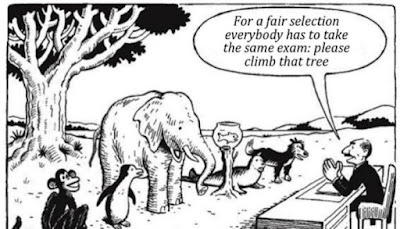16 Years of Irrelevant Education
Having finally settled into the post-undergrad work life, I realize how irrelevant my education was! You are hireable only if you add value to your employer. Since humankind is a social animal and most jobs function with constant interaction between people, you should know how to be a resourceful participant in a group and work constructively in a team. Every job can be thought of as a project. Whether it's construction, plumbing, computer engineering, teaching, or nursing. You start with a common objective and collectively work your way towards a goal. Independent of scale, every job is a project. Now, a project consists of being able to plan, negotiate, execute under strict deadlines and constantly collaborate with people. Since the primary role of education is to prepare the student to face the real world once they are out of their parents' protection, why don't we focus enough on working in groups? This is why Kindergarten was the best; the reason pre-school



